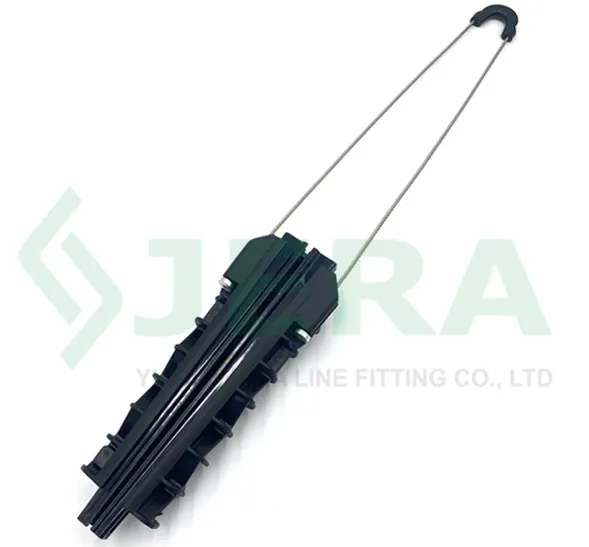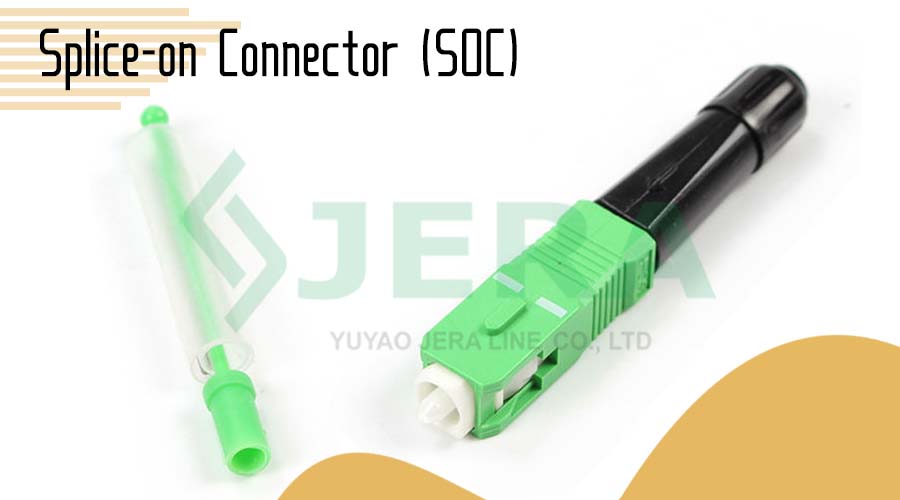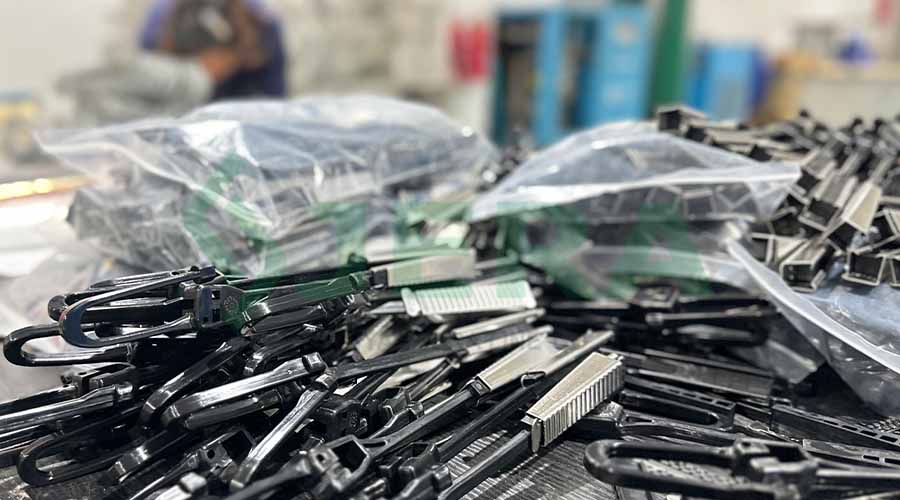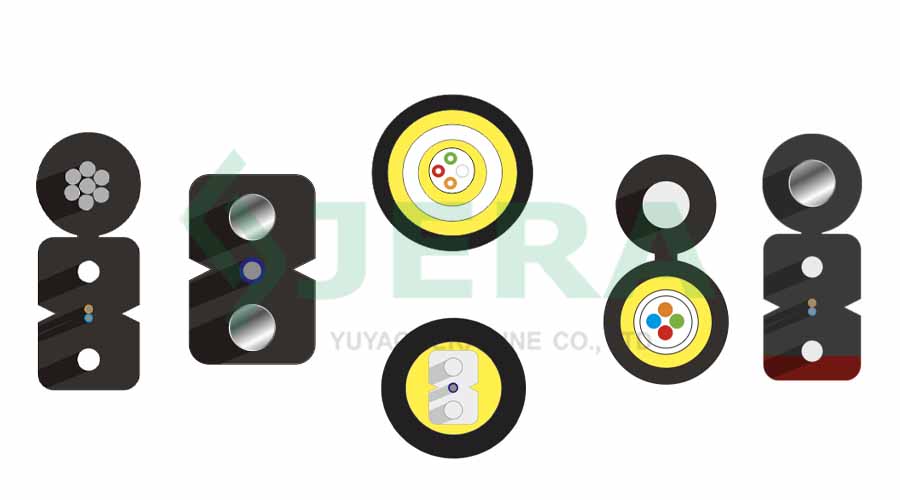The "Caja Nap" refers to the FTTH (Fiber to the Home) terminal box. It is used to terminate feeder optical cables into fiber optic cords, patch cords, and pigtail cords along the last-mile routes to end users during the construction of FTTH telecommunication networks.
What’s the FTTH terminal box
An FTTH terminal box is a core passive component in FTTH telecommunication networks. Acting as a centralized hub for fiber connection and management in the "last mile"—the final network segment linking telecom operators’ backbone infrastructure directly to end users—it ensures stable, efficient termination, splicing, and distribution of optical signals, ultimately enabling the delivery of high-speed fiber-optic services to users.
Among FTTH terminal boxes, Jera Line’s model FODB-8F.2-2 stands out as a popular and competitive option in the market.
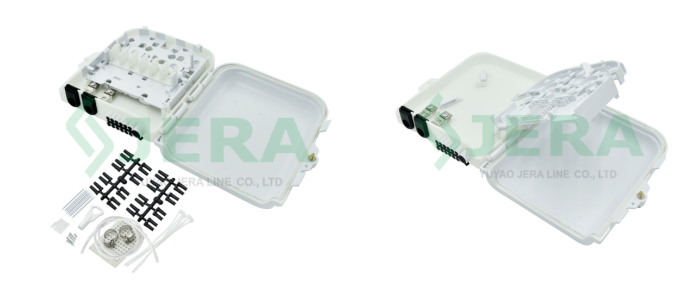
Key features of Ftth terminal box FODB-8F.2-2
-
2 cable inputs and 13 outputs ports;
-
Intergrated seal sealed , wet and dust proof;
-
Appropriate for PLC splitters, SC adapter installation;
-
Made of high quality ABS and PVC, with high mechanical strength;
-
No ground device, anti-vandal and equipped with lock and key;
-
Interior stainless steel ties allow fixating feeder cable of different size without slippage;
-
Provide quick and easy access for drop cable connection;
-
Easy operation, screw installation on wall;
-
Excellent environment stability.
Technical specification of Ftth terminal box FODB-8F.2-2
|
Product code
|
FODB-8F.2-2
|
|
Feeding cable dimensions, mm
|
2 of θ17
|
|
Drop cable dimensions, mm
|
12 of max dia 3 mm
1 max dia 10 mm
|
|
Adapters, SC type
|
12 SC (no ears-type)
|
|
PLC splitters
|
1 of 1:8 or 2 of 1:4
|
|
IP protection
|
54
|
|
Overall dimensions, mm
|
210×195×55
|
Key Advantages of Ftth terminal box FODB-8F.2-2
The Jera Line FTTH terminal box model FODB-8F.2-2 stands out in the market with a combination of robust performance, flexible adaptability, and practical design, making it a preferred choice for last-mile fiber network deployments.
-
Superior Environmental Durability for Versatile Scenarios
-
Flexible Configuration & Reliable Connectivity
-
Easy Deployment & Low Operational Costs
-
Enhanced Security & Quality Assurance
-
Cost-Effective & Market-Competitive
How to Choose the Right FTTH Terminal Box (Caja Nap)
Selecting an appropriate FTTH (Fiber to the Home) terminal box—commonly referred to as "Caja Nap" in many regions—is critical to ensuring stable, long-term fiber optic network performance, protecting fiber connections, and adapting to both current and future usage needs. Below is a systematic guide to help you make an informed choice, covering core considerations from functional requirements to practical application scenarios.
1. Clarify Core Functional Requirements First
The primary role of an FTTH terminal box is to terminate, splice, and protect fiber optic cables while facilitating easy management of fiber links.
2. Prioritize Material and Durability
The material of an FTTH terminal box directly dictates its service life and its ability to protect fiber optic components—devices highly sensitive to physical damage and environmental interference. When evaluating options, focus on material properties that align with your installation environment (e.g., weather resistance for outdoor use, impact resistance for high-traffic areas) to ensure long-term reliability.
At Jera Line, we believe trust is built on an unwavering commitment to quality—and that commitment starts with every product we deliver. For customers placing their first order with us, we are proud to offer an initial 5-year product guarantee. This guarantee is more than a promise: it is a testament to the meticulous craftsmanship, advanced technology, and rigorous quality standards that define every item bearing the Jera Line name.
3. Evaluate Installation and Maintenance Convenience
A well-designed FTTH terminal box should simplify installation (for technicians) and reduce maintenance effort (for long-term use)
4. Verify Compliance with Industry Standards
To ensure compatibility with existing fiber optic networks and avoid safety hazards, the terminal box must meet relevant international or regional standards
As a direct manufacturer, Jera Line assumes full responsibility for guaranteeing the quality of all products it manufactures. We would like to elaborate on this to help you make more informed decisions when selecting suppliers. We strongly recommend that when evaluating new suppliers—especially in the field of power cable infrastructure—you consider not only cost-effectiveness but also product quality and warranty policies.
At Jera Line, product quality is our core principle. We never use second-hand or recycled materials. We fully recognize that electrical products especially those used in power cable infrastructure—must meet rigorous durability and type test standards. These standards are critical not only for ensuring safety during end-user applications but also for preventing accidents during maintenance or in overhead/underground cable systems, thereby protecting lives and property.
5. Consider Brand and After-Sales Support
While cost is a factor, choosing a reputable brand reduces the risk of purchasing low-quality products that may fail prematurely
By following these steps, you can select an FTTH terminal box (Caja Nap) that balances performance, durability, and practicality—ensuring your fiber optic network runs reliably for years to come.
Applications of Ftth terminal box FODB-8F.2-2
The FODB-8F.2-2, with its balanced port configuration, environmental adaptability, and practical design, is widely used in FTTH (Fiber to the Home) network deployment scenarios that serve small-to-medium user groups. Its core applications focus on "last-mile fiber connection and signal distribution," covering the following key scenarios:
-
Residential Communities
-
Small Office & Home Office (SOHO) Zones
-
Rural & Suburban FTTH Coverage
-
Temporary Fiber Deployment
In summary, the FODB-8F.2-2 is tailored for small-scale, flexible FTTH deployment scenarios—balancing functionality, durability, and ease of installation to meet the fiber access needs of residential, SOHO, rural, and temporary users.
Test for FTTH terminal box
UV and temperature aging test
UV and temperature aging test other called climate aging test to examine the quality of materials or products if they meet expected functionality and lifetime. This test simulates different weather conditions, such as high humidity, high UV-radiation and high temperature.
We proceed test on almost all the overhead cable products
Test chamber was preformed automatically, which can avoid human mistakes to make sure the the authenticity and precision of the experiment. Climatic aging test procedure involves put products into chamber with presetting humidity, UV radiation, temperature.
Test preformed by dozen of cycles of rising and falling mentioned criteria. Each cycle includes some hours of aggressive climatic conditions. All controlled by radiometer, thermometer etc. The radiation, temperature, humidity ratio and time have different values base on standard IEC 61284 for overhead fiber optic cable, and accessories.
We use following standards test on new products before launching, also for the daily quality control, in order to make sure ours customer could receive products which meet quality requirements.
Our internal laboratory is capable to proceed such a series of standard related type tests.
Why customers choose Jera Line:
When selecting an FTTH (Fiber-to-the-Home) terminal box, reliability, adaptability, and long-term value are critical—especially as it serves as the "last-mile bridge" between telecom networks and end users. Jera Line’s FTTH terminal boxes (e.g., the popular FODB-8A-3 model) stand out in the market by addressing core pain points of operators, installers, and users alike. Below are the key reasons to choose our products:
-
Engineered for Durability: Withstand Diverse Environments
-
Optimized for Easy Installation & Maintenance
-
Stable Signal Transmission: Protect Fiber Performance
-
Versatile for All FTTH Scenarios
-
Competitive Value & Reliable Support
-
Compliance with Global Standards
In short, Jera Line’s FTTH terminal boxes aren’t just "containers for fibers"—they’re engineered to save time, reduce risks, and ensure long-term network stability. Whether you’re a telecom operator deploying FTTH at scale, a contractor needing easy-to-install products, or a distributor seeking reliable inventory, our boxes deliver on performance and value.
Contact us now to request samples, quotations, or technical consultation. Our team of fiber optic specialists is ready to support your projects.


















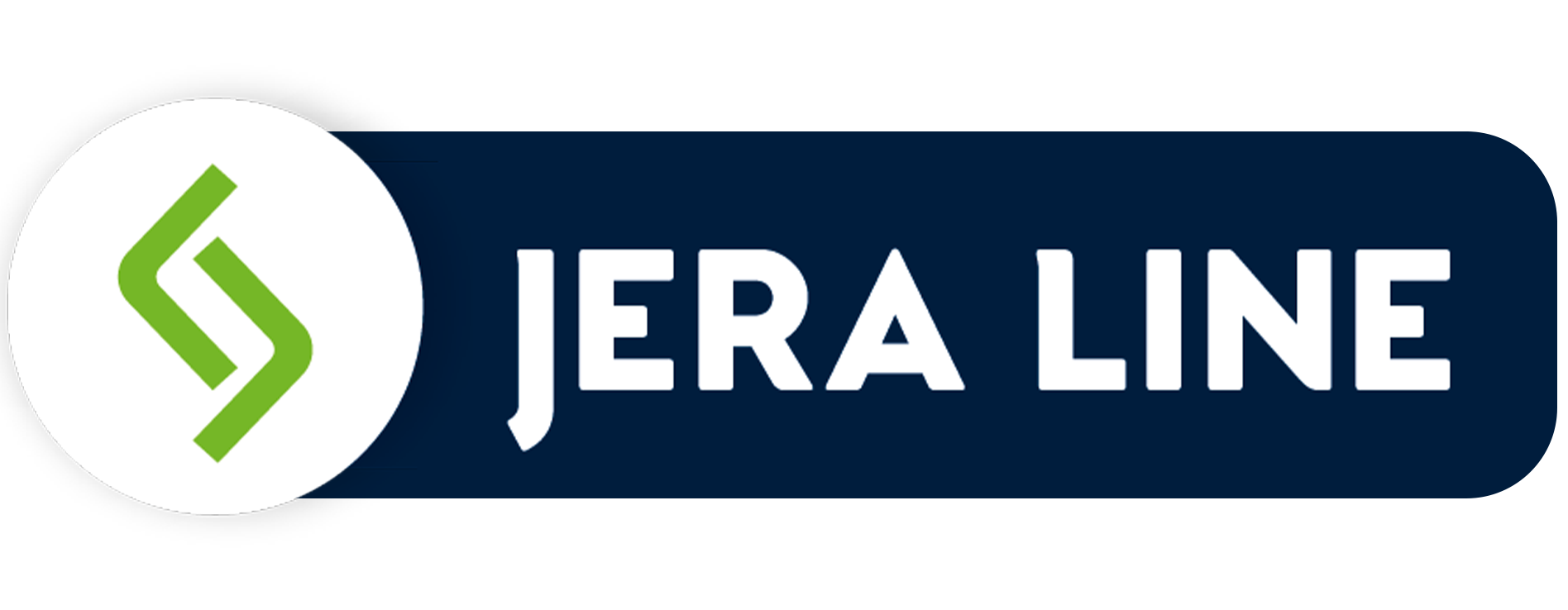
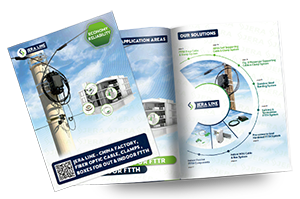

.png)






